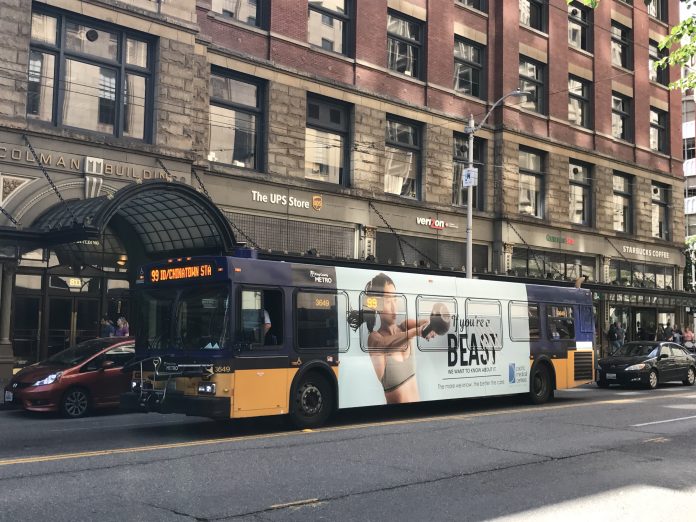On Tuesday, King County Executive Dow Constantine announced a plan to elevate King County Metro Transit as a standalone department in county government. The transit agency currently operates as a division within King County Department of Transportation. According to Executive Constantine, a separate department for just Metro would provide greater innovation and accountability for public public transit in King County.
In a statement, Executive Constantine hailed the proposal as a means to “make strong progress in mobility, delivering capital investments, focusing on employees, and forging strong community partnerships.” The Executive pointed to recent programs and plans developed by Metro as examples, such as ORCA Lift (a program designed to reduce transit costs for low-income individuals), the Metro Connects long-range plan, and a service integration partnership with Sound Transit (e.g., One Center City and Bus2Link restructures).
In a letter addressed to both Harold Taniguchi, King County Department of Transportation Director, and Rob Gannon, General Manager of Metro, the Executive outlined four principles driving creation of a new transit department:
Mobility: Residents of King County rely on Metro to help them get to their jobs, recreational activities, and education centers. We must continue to build options for current transit riders and to attract new riders through better connections to other transit modes, providing new first/last mile investments, and developing additional innovative tools to enhance the customer experience.
Capital Program: With the adoption of the long-range plan, Metro has committed to an ambitious capital program. It is essential that Metro better align its resources in order to quickly and efficiently deliver on the capital program that will allow for the service investments the region is seeking.
Employee Investment: Another pillar of my administration is my focus on our employees. King County has talented and dedicated employees and we need to continue to invest in ways that help us become the employer of the future. With close to 5,000 employees, Metro plays a key role in working with our labor partners to ensure the safety and wellbeing of one of our most valuable assets.
Partnerships: No organization can accomplish their mission without strong partnerships. A focus for the new department will be to continue to build on the strong relationships with our cities, stakeholders, businesses, and regional transit providers. Successful implementation of the long-range plan and solutions to some of our region’s most challenging mobility problems will only be realized if we work together.
Metro has a complicated history starting out partially as a municipal transit arm in the City of Seattle and private transportation company serving suburban communities. Eventually, Metro merged into county government after popular support by the public in 1992. The transit agency was a standalone department until 1996 when it became a division of the newly formed King County Department of Transportation, which provides a host of services, such as road maintenance and construction, airport operations, and passenger-only water taxi service. Metro is the county’s biggest budget line-item and employer boasting over $1.6 billion in the biennial budget and 4,800 employees.
The evolution to a standalone transit department won’t happen overnight, but it could become a reality by early 2019. Executive Constantine intends to create a working group with other elected county officials to develop a shared vision for a transit department. Specifically, the working group will be tasked with identifying objectives and priorities that will guide development and responsibilities of the department. What is not clear at this point, however, is whether or not the functions of the Marine Division for passenger-only water taxi service will be included into the new department.
Legislation to create the new department would likely be moved to the County Council in the latter half of 2018, which would overlap with the fall budgeting process.
Stephen is a professional urban planner in Puget Sound with a passion for sustainable, livable, and diverse cities. He is especially interested in how policies, regulations, and programs can promote positive outcomes for communities. With stints in great cities like Bellingham and Cork, Stephen currently lives in Seattle. He primarily covers land use and transportation issues and has been with The Urbanist since 2014.



